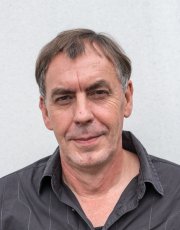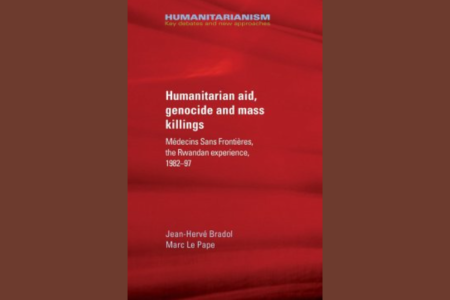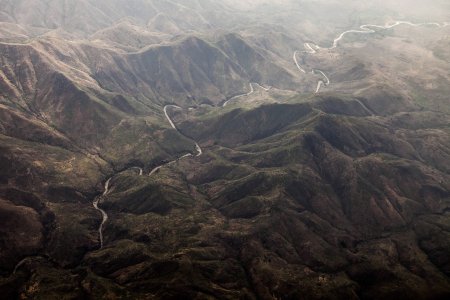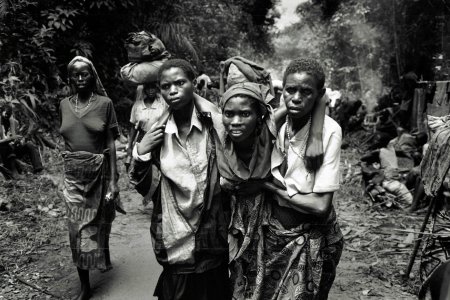
France in Rwanda. Guilty neutrality
Jean-Hervé Bradol
The CRASH team invited you to the screening-debate “France in Rwanda. Guilty neutrality” on Monday 11th of February 2019 from 6 to 8pm, in the 1rst floor room of the 8 rue Saint-Sabin. A documentary film by Robert Genoud and Claudine Vidal (Director Emeritus for research at the CNRS, member of the CRASH scientific committee at MSF), and produced by EUP. Before and after the screening, Claudine Vidal and Jean-Hervé Bradol, both actors of MSF mobilization between 1994 and 1998 launched the discussion.
In Rwanda, the genocide against the Tutsis started in April 1994. Twenty-five years ago. In 1998, in Paris, the National Assembly launched a fact-finding campaign on the military operations led in Rwanda by France, other countries and the UN, between 1990 and 1994Column “For a parliamentary commission of inquiry on the role of France between 1990 and 1994. In Rwanda, what France? ” Published on March 3rd 1998 in Libération..The meetings were mostly public, several MSF members were constantly attending and reported immediately on the Internet. Following this active watch, it was decided to produce a movie: an inquiry, an observation of the parliamentary work, along with a retelling of the positions held by MSF, the military and political commitments in France, the reactions they elicited, and finally the humanitarian practices between 1990 and 1994.
This movie calls for questions that still hold relevance today, at least at MSF: on the appropriateness of calls for parliamentary inquiries along with the publicity around the debates and documents; on the alerts to the risks of mass crimes and on public usage of said alerts; on the ability of humanitarian teams to intervene during episodes of extreme violence; on the necessary situational inquiries and short stories to which MSF must commit to understand the events and potentially anticipate the worst.
To cite this content :
Claudine Vidal, Jean-Hervé Bradol, “France in Rwanda. Guilty neutrality”, 11 février 2019, URL : https://msf-crash.org/en/conferences-debates/france-rwanda-guilty-neutrality
If you would like to comment on this article, you can find us on social media or contact us here:
ContributePast events
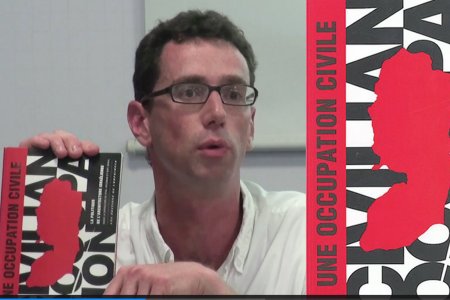 Conference
Conference
Eyal Weizman - Forensic Architecture at work
02/15/2016 - 07:00 PM 09:30 PMEyal Weizman, the founder of « Forensic Architecture » at the Goldsmiths College (University of London) came to present the project as well as a number of his works at a MSF - Crash conference organised at MSF.
 Conference
Conference
The polio eradication campaign put to test
02/04/2014 - 01:30 PM 07:30 PMThe polio eradication campaign has indeniably and remarkably succeeded in tumbling down the number of polio cases worldwide. But difficulties currently faced by the Programme -pockets of social resistance in several countries, reinfection of some countries, outbreak of epidemics associated with strains of vaccine-derived polio viruses- indeed challenge one of the main assumptions underlying the objective of the eradication itself : the full compliance of an entire population to a public health program.
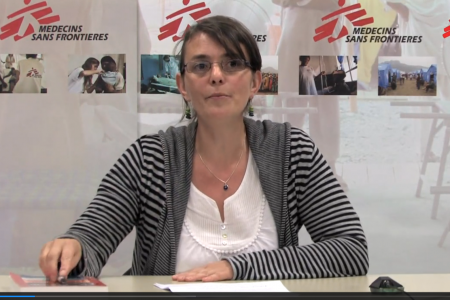 Conference
Conference
Living a Natural Disaster
11/03/2010 - 07:00 PM 09:00 PMPeople wandering through the rubble in Haiti, arms outstretched begging for help amid the floods in Pakistan: the media coverage of disasters invariably features helpless victims, overwhelmed by the disaster, waiting to be helped...
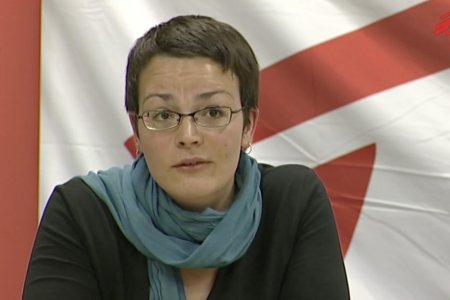 Lena Mucha
Conference
Lena Mucha
Conference
From their point of view
03/10/2009 - 07:00 PM 09:30 PMThe reasons why we are accepted, tolerated or sometimes rejected in the contexts where we work are often obscure. Caroline Abu-Sada and her team of sociology student shed some light on these issues.
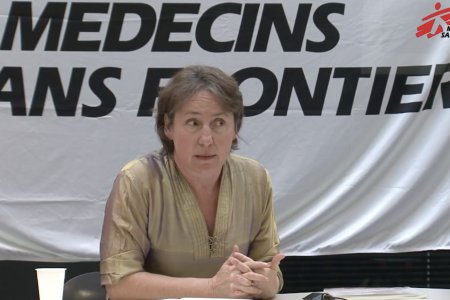 Jacob Zocherman
Conference
Jacob Zocherman
Conference
Grounds for divorce ? MSF and the international criminal court
04/08/2009 - 08:30 PM 10:30 PMIn 1998 MSF decided to support the creation of the International Criminal Court. 10 years later MSF stated that it ‘would not cooperate and would not transmit any information to the ICC'. How can we explain this change of position?

